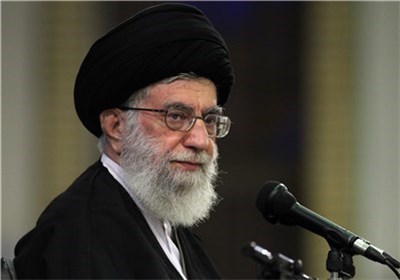
RNA – Ayatollah Khamenei had a meeting with the cast and crew of the Iranian movie “Track 143” on June 16, 2014.
The newly released details of the meeting reveals the Supreme Leader’s great emphasis on the need for more works of art to explain the “magnificent phenomenon” of the Sacred Defence, a term used to refer to the Iraqi-imposed war on Iran, which is also known as the Iran-Iraq War.
Track 143 tells the story an Iranian mother who waits for years to once again meet her son, a soldier that goes missing in action during the war and his body is found after 15 years.
During the June meeting, Ayatollah Khamenei praised the film’s director and actors for their good performance in illustrating the “values” of the Sacred Defence.
The Leader, however, stressed that Iran’s motion picture industry has not sufficiently used the “great capacity” of the war in the movies.
The Supreme Leader made a reference to the foreign cinematic projects that use the world wars as the main theme, saying the US and many other countries still make war movies 100 years after the World War One began in 1914.
“We enjoy such a great glory (the Sacred Defence), the whole world fought with us… the entire military powers somehow stood in the front against the Islamic Republic establishment in the imposed war during eight years, and the Islamic Republic overcame, it emerged victorious… This is a very important event in the history of a nation,” Imam Khamenei explained.
On September 22, 1980, Iraq, under control of executed dictator Saddam Hussein, invaded Iran and began the imposed war on the country until 1988.
R111/112/C